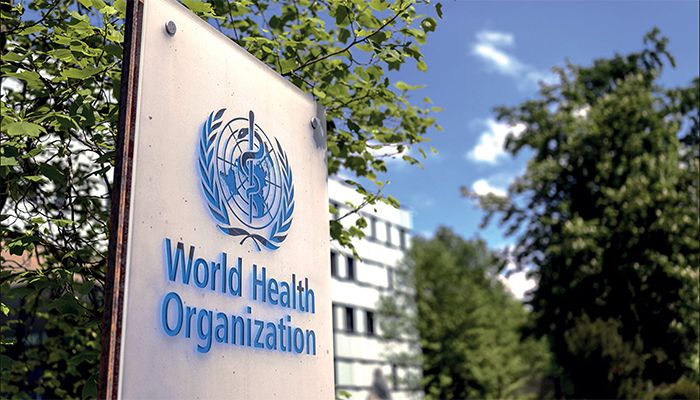
International Desk
Publish: 17 Aug 2023, 11:47 am

WHO’s Logo || Photo: Collected
The World Health Organization will convene its first summit on traditional medicine on Thursday. The organization has issued warnings that therapies based on natural products can only be successful alternatives to conventional medicine if they have been scientifically validated.
The UN health agency stated that traditional medicines are a "first port of call for millions of people worldwide" and that the meetings in India that brought together policymakers and academics aimed to "mobilise political commitment and evidence-based action" toward them.
In a statement released before to the meeting, Tedros Adhanom Ghebreyesus, the president of WHO, stated that while traditional medicine may help close healthcare "access gaps," it was only valuable when used "appropriately, effectively, and above all, safely based on the latest scientific evidence."
In the Indian city of Gandhinagar, the two-day WHO Traditional Medicine Global Summit coincides with a gathering of G20 health ministers.
According to a statement by WHO research head John Reeder, "traditional medicine's advancement of science should be held to the same rigorous standards as in other fields of health."
To address these more comprehensive, contextual methods and give data that is convincing and strong enough to inspire policy suggestions, new methodology may be needed.
The WHO meeting is slated to be opened by Indian Prime Minister Narendra Modi, who has frequently praised yoga's health advantages and hailed it as a "panacea" for stress and even hatred.
Following the inauguration of a WHO Global Centre for Traditional Medicine, also in India's Gujarat state, last year, the conference is expected to become an annual event.
Despite being widely utilized in various regions of the world, traditional medicines are sometimes subject to harsh criticism.
Traditional medicine is described by the UN agency for health as the knowledge, abilities, and procedures utilized throughout time to preserve health and to prevent, identify, and cure physical and mental illness.
Conservationists claim that the business fuels a rampant traffic in animals that are threatened with extinction, including as tigers, rhinos, and pangolins, endangering the existence of entire species. However, many conventional therapies lack any scientific basis for their use.
During the Covid-19 epidemic, the use of home remedies increased dramatically, including the president of Madagascar's promotion of a green herbal drink based on Artemisia as a treatment.
The herb has been shown to be effective in treating malaria, although many doctors disapproved of its usage to cure covid.
established Chinese medicine has a long history in China, but prestigious European medical organizations have previously urged that it be subject to the same regulatory scrutiny as established Western medical practices.
Only 124 of the WHO's 194 member nations reported having rules or regulations governing the use of herbal medicines, and only half had a national policy on such procedures and medications. Since 2018, 170 of the WHO's 194 member states have admitted using traditional and complementary medicine.
"Natural doesn't always mean safe, and centuries of use are not a guarantee of efficacy; therefore, scientific method and process must be applied to provide the rigorous evidence required," the WHO stated.
According to the WHO, "landmark drugs" that come from traditional medicine, like aspirin, depend on formulations employing willow tree bark. About 40% of authorized pharmaceutical products now in use have this "natural product basis."
Source: AFP
Subscribe Shampratik Deshkal Youtube Channel
© 2024 Shampratik Deshkal All Rights Reserved. Design & Developed By Root Soft Bangladesh